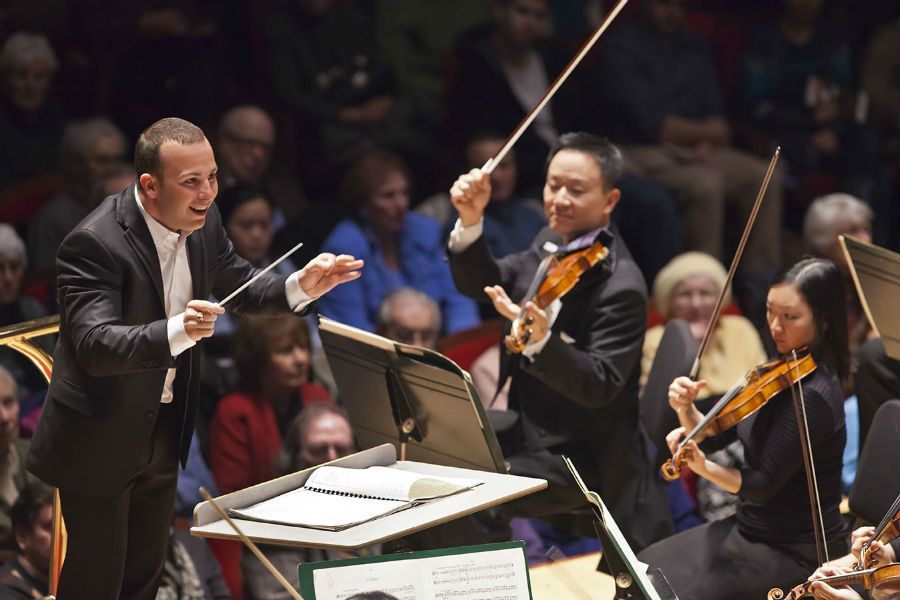Making a career choice can be tough, and it’s no different for musicians. While some will be lucky enough to have been identified as child prodigies or simply to have decided at a young age to pursue their dream, most have to think long and hard about their options. Warren Lee, a pianist, and composer who also teaches students has gained considerable experience in providing career advice to would-be musicians and outlined some of the key things he tells them in a recent article. (Image: The Philadelphia Orchestra – sequenza21.com)
So, if you’re one of those music students trying to decide whether to go for it and strive to become a professional performer, what should you be thinking about? Here are a few things to consider.
A passion for music may not be enough.
From a young age, many people love learning to play a musical instrument and may be drawn to study music for that reason. Even if this has allowed you to develop your talent to a high level, a passion for music can only really be one aspect of your motivation for pursuing a professional musical career. In this interesting article, teacher, and writer David Lindquist reflects on his realisation that despite his burning passion for music, a professional career as a performer was not for him.
It’s tough at the top.
Like other musical genres, the classical music industry is brutally competitive. Under conditions where orchestras are closing down and reducing their budgets, there are fewer opportunities out there for the many talented individuals who seek to embark upon a performing career. Even among the students graduating from the best music programs, the employment opportunities are sometimes just not there.
Practice, practice, practice.
Whether violinist Mischa Elman’s response to the question “how do you get to Carnegie Hall?” really was “practice, practice, practice” is debatable. What isn’t is that if you do want to make it into an orchestra or enjoy a solo career, practicing will be an essential part of your life. Research is even suggesting that it may be necessary to have been practicing from early childhood in order to reach your full potential. In his article, Lee mentions the work of psychologist K. Anders Ericsson, which suggests that to achieve expert levels, musicians have to have practiced for 10,000 hours by the time they are 18.
Making music your profession is not the only way to keep it in your life.
Even if music is your biggest passion, you can still keep your enthusiasm for it alive without being a professional pianist or violinist. Talented musicians are required to teach children and young people, offer music therapy sessions or conducting research into music. And if your line of work doesn’t have a direct connection with your musical instrument, there is always the option of being an amateur musician in your free time.
Can you cope with stress and uncertainty?
It’s great to be able to play the music you love for a living, but unfortunately, the career of a modern-day musician is frequently a stressful one. According to a survey by Help Musicians UK, a charity set up to support performers in the music industry who are struggling, over 80 percent of musicians had money problems and 75 percent suffered from performance anxiety. A report from the Musicians’ Union in the UK found that 56 percent of surveyed performers earned less than £20,000 per year in 2012.
Forget stable working hours.
In the same survey mentioned above, 84 percent of musicians said their biggest difficulty was unsocial working hours, while 79 percent stated it was insecure work. The life of a freelance musician can often mean being available at any time, with no set pattern. Even for those contracted to perform in an orchestra, grueling touring schedules make it difficult to spend time with family and friends.
If you want to be a musician in spite of all of this, do it!
Lee ends his article on a positive note, and so should we. The opportunity to perform some of music’s masterworks for a living, entertain and bring happiness to audiences, and communicate powerful emotions which words fail to describe are privileges enjoyed by professional musicians. Who wouldn’t want to have a chance to enjoy all of that?

